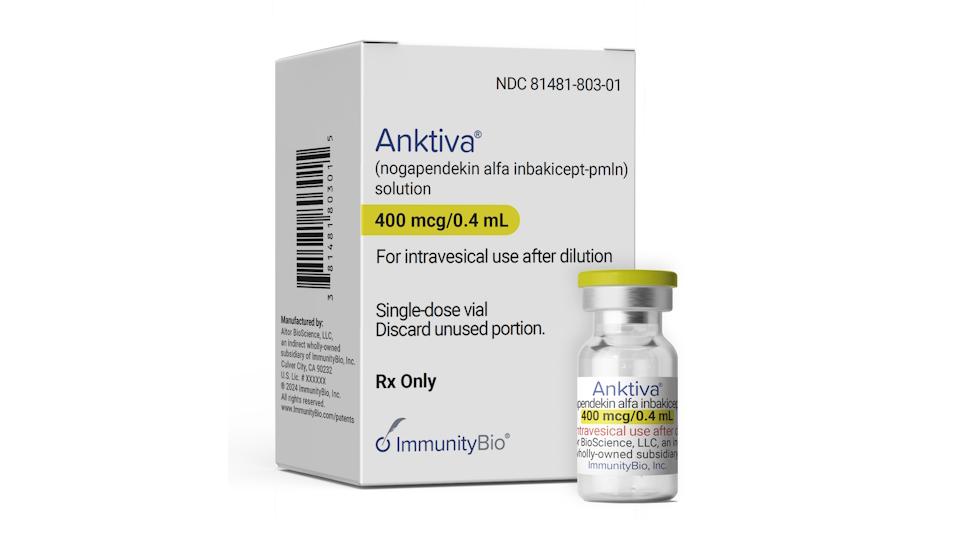Cyramza could help bladder cancer patients who don't respond to immunotherapy

The field of bladder cancer treatment is developing at lightning speed, but the future doesn't necessarily belong exclusively to immunotherapy.
New data presented today at ESMO shows Lilly's Cyramza (ramucirumab) plus docetaxel improves progression-free survival in patients with advanced or metastatic urothelial cancer who have progressed on platinum-based chemotherapy.
Lilly began its trials of the drug two years ago when there were no immunotherapies (IO) approved in these patients. Now there are no fewer than four: Merck's Keytruda, BMS' Opdivo, Roche's Tecentriq and AstraZeneca’s Imfinzi.
However, checkpoint inhibitors are only effective in around 25% of patients with platinum-refractory advanced or metastatic urothelial cancer, and there are few options for those who progress or are ineligible.
A phase 2 study of Cymraza found that adding the (VEGFR-2) antibody ramucirumab to docetaxel nearly doubled progression-free survival compared to docetaxel alone in patients with platinum-refractory advanced or metastatic urothelial cancer.
That's why Lilly believes it's drug may yet have a bright future in this setting. Its phase 3 RANGE trial was presented today at ESMO in Madrid, the trial studying 530 patients with advanced or metastatic urothelial cancer who had progressed on first line platinum-based chemotherapy within the previous 14 months. Patients were randomised 1:1 to ramucirumab plus docetaxel (263 patients) versus placebo plus docetaxel (267 patients).
The primary endpoint of investigator-assessed progression-free survival was significantly prolonged with ramucirumab plus docetaxel compared to placebo plus docetaxel (4.07 months versus 2.76 months; hazard ratio, 0.757). Results were slightly more favourable in a blinded central analysis, with a progression-free survival of 4.04 months with ramucirumab/docetaxel compared to 2.46 months with placebo/docetaxel (hazard ratio, 0.672).
The objective response rate was 24.5% in the ramucirumab/docetaxel arm compared to 14.0% in the placebo/docetaxel arm. Overall survival data is still maturing.
Toxicities were similar between groups, with slightly less anaemia with ramucirumab/docetaxel compared to placebo/docetaxel. Treatment was discontinued, primarily due to progressive disease, in 209 patients on ramucirumab/docetaxel and 229 patients on placebo/docetaxel. Quality of life did not change during the study, and there were no differences between treatment arms.
“Ramucirumab reduced the risk of disease progression by 24% and this was consistent across patient subgroups,” said lead author Professor Daniel P. Petrylak, professor of medicine and urology, Yale School of Medicine and Yale Cancer Center, New Haven, CT, US. “The objective response rate nearly doubled with ramucirumab and there were no significant differences in toxicities between treatments.”
He concluded: “Ramucirumab plus docetaxel could become a standard of care in patients with platinum-refractory advanced or metastatic urothelial cancer who have either progressed on checkpoint inhibitors or are not eligible to receive them.”
However, other experts in the field aren't getting carried away just yet, as overall survival data hasn't been presented.
Commenting on the results, Dr Richard Cathomas, deputy chief physician of oncology and haematology, Kantonsspital Graubünden, Chur, Switzerland, said: “This is the first trial to show a progression-free survival benefit compared to chemotherapy alone in patients with platinum-refractory urothelial cancer. However, the magnitude of benefit was 1.3 months and, while statistically significant, it raises the question of whether it is clinically relevant.”
“We need to know if the improvement in progression-free survival translates into an overall survival benefit,” continued Cathomas.
He points out that other trials combining chemotherapy with angiogenesis inhibitors in different cancers have produced very small PFS survival benefits which often does not translate into overall survival.
He concluded: “It is too early for these results alone to change the standard of care second line treatment, which is immune checkpoint inhibition. But the improvement in response rate shows that ramucirumab does have an impact on the disease, so in future, angiogenesis inhibition may become part of the treatment armamentarium for urothelial cancer.”
As in other cancer types, trials of combinations of IO and non-IO agents are underway. Exelixis and Ipsen have prsented phase 1 data on their drug cabozantinib in combination with BMS' Opdivo (nivolumab) known as 'CaboNivo' with or without BMS' Yervoy (ipilimumab) in metastatic urothelial carcinoma (mUC) and other genitourinary (GU) malignancies.











